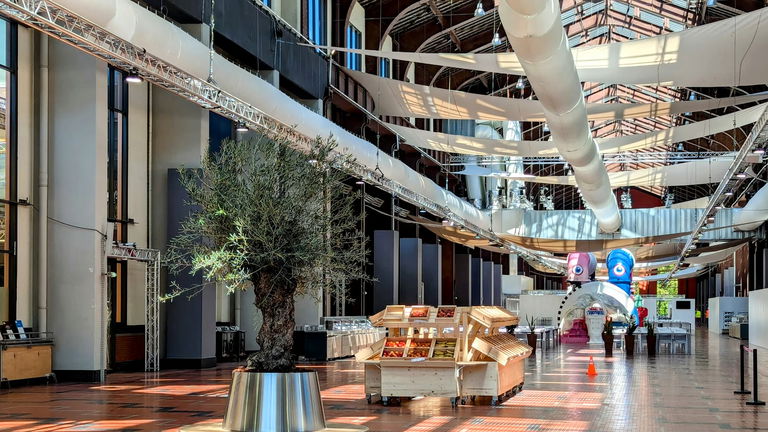What are the athletes eating at the Summer Olympics in Paris?
In the Olympic Village in Paris the largest restaurant in the world opened its doors. Around 15,000 meals are now served here every day for athletes from 206 nations.
Paris not only hosts a major sports event, but also a top-class culinary challenge. In addition to the athletes, the organizers also face an ambitious task: every day they have to provide around 15,000 people from all over the world with meals that meet both the sporting requirements and cultural preferences. The Olympic Village, which is housed in a former film studio in Saint-Denis, will accommodate around 10,500 athletes from a total of 206 nations over the coming weeks. They will be joined by team staff and officials.
During this time, Paris will also be home to the world's largest restaurant with 3,200 seats, which will provide around 40,000 meals a day. A team of 200 employees will prepare over 500 recipes. Local and seasonal ingredients are used, with around 80% of the products coming from France and the surrounding area. For example, the potatoes are supplied by a farm less than 30 kilometres from the Olympic Village. In addition to international, French, Asian, African and Caribbean options, there is also a halal station, as Australian boxer Tina Rahimi shows on TikTok. Around 40 percent of the dishes are vegetarian.
@tinarahimii_ Replying to @BellaLuna Dining Hall Tour at the Olympic Village! #olympics #olympicvillage #halalfood ♬ original sound - Tina Rahimi
Chefs from all over the world
The Sodexo Group, a French company specialising in catering, communal catering and facility management worldwide, is responsible for this logistical masterpiece. Twenty of its chefs from all over the world were sent to the Olympic Village. Carole Galissant, nutritionist at Sodexo Live, explained in an interview with the New York Times how she coordinated with the delegations' nutritionists to take the athletes' special needs into account. The Korean delegations wanted kimchi, the Japanese miso. Some requests, such as passion fruit from the Caribbean, could not be fulfilled due to sustainability regulations, as import by air freight is prohibited.

"The challenge is to reconcile French cuisine with the special nutritional needs of the athletes," Galissant explains to the international daily newspaper.
Alternative accommodation off Tahiti
However, there will of course be a small focus on the culinary delights of the host country. Three top chefs from renowned French restaurants – Akrame Benallal, Amandine Chaignot and Alexandre Mazzia – will be on hand to prepare dishes such as coconut beans with parsley ice cream and crispy mushroom croquettes. There will be cheese platters and French butter. The dishes will be served on French porcelain and will also be cleaned in three giant dishwashers built especially for the Games. But not all athletes will be able to enjoy the Olympic Village in Paris. The German equestrian team, for example, will be staying at the Lidl France headquarters, which is located near the Palace of Versailles, where the competitions will be held in the garden. Other athletes, such as the sailors, are housed in Marseille in the south of France, overlooking the sea, palm trees and mountains.
The most spectacular accommodation, however, is for the 48 surfers, who even have to put up with a 12-hour time difference compared to Paris: they are staying off the island of Tahiti, the largest island in French Polynesia. The only hotel in the small village of Teahupo'o is currently being renovated. However, the athletes are equally happy about their alternative accommodation, a cruise ship; see on Instagram and other social media.
Don't miss out!
Sign up now for our newsletter.


